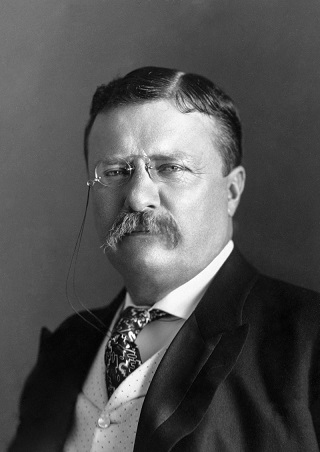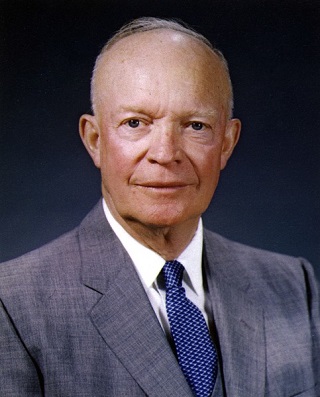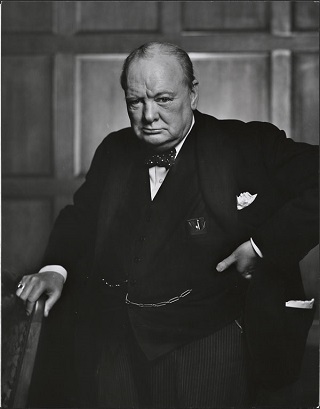

How often have we heard famous quotes repeated in magazines, newspapers, books and that horrible American invention known as television, but we know not where these quotes come from or who uttered the words that are now famous. Another semi-American invention the "internet" has now replaced some of former media's hold on news, information and resources so the we can now research for ourselves into who stated what quote such as:
"Our new Constitution is now established, and has an appearance that
promises permanency, but in this world nothing can be said to be
certain, except death and taxes".
The second portion of that sentence has been often simply repeated as "nothing in this world can be said to be certain, except death and taxes"! Who stated those words?
Normally the given author of that quote is Benjamin Franklin, in a letter to Jean-Baptiste Leroy, 1789. This timeframe was just after the adoption of the US Constitution and the debate on taxation. One also must understand that taxation in 1789 was miniscule compared to today as in 1789 their was NO income tax, Social Security Tax.
Actually Benjamin Franklin was not the first to use the "death and taxes" idiom as both Daniel Defoe and Christopher Bullock had use that phrase in earlier books.
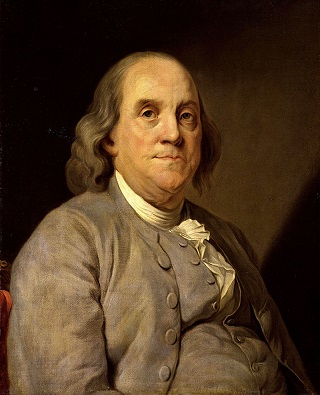 |
  |
 |
Benjamin Franklin
Born: January 17, 1706, Boston, MA Died: April 17, 1790, Philadelphia, PA Benjamin Franklin was one of the Founding Fathers of the United States. Franklin was a renowned polymath and a leading author, printer, political theorist, politician, freemason, postmaster, scientist, inventor, civic activist, statesman, and diplomat. As a scientist, he was a major figure in the American physics for his discoveries and theories regarding electricity. As an inventor, he is known for the lightning rod, bifocals, and the Franklin stove, among other inventions. |
 |
|
 |
 |
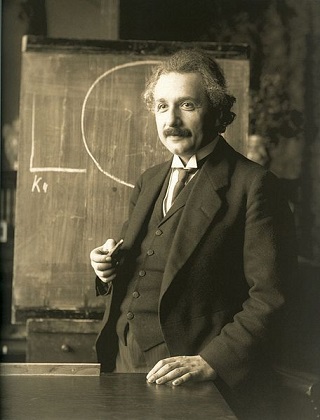 |
  |
 |
Born: March 14, 1879, Ulm, Germany
Died: April 18, 1955, Princeton, NJ Albert Einstein was a German-born theoretical physicist. He developed the general theory of relativity, one of the two pillars of modern physics. Einstein's work is also known for its influence on the philosophy of science. |
 |
 |
  |
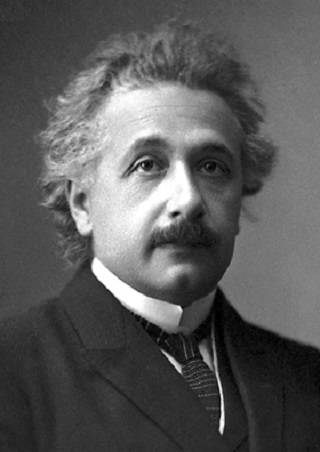 |
 |
 |
| He was visiting the United States when
Adolf Hitler came to power in 1933 and, being Jewish, did not go
back to Germany, where he had been a professor at the Berlin
Academy of Sciences. He settled in the U.S., becoming an
American citizen in 1940. On the eve of World War II, he endorsed a letter to President Franklin D. Roosevelt alerting him to the potential development of "extremely powerful bombs of a new type" and recommending that the U.S. begin similar research. This eventually led to what would become the Manhattan Project. Einstein supported defending the Allied forces, but largely denounced the idea of using the newly discovered nuclear fission as a weapon. |
  |
 |
 |
  |
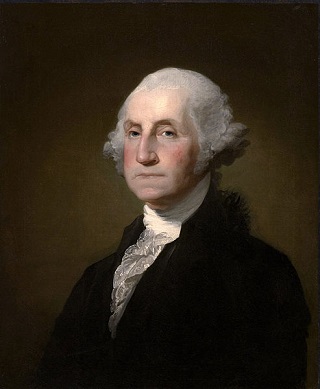 |
|
George Washington
Born: February 22, 1732, Westmoreland County, Virginia, VA Died: December 14, 1799, Mount Vernon, VA Height: 6' 2? Party: Independent politician George Washington was the first and only nonpartisan President of the United States (1789–97), the Commander-in-Chief of the Continental Army during the American Revolutionary War, and one of the Founding Fathers of the United States. He presided over the convention that drafted the United States Constitution and was called the "father of his country" during his lifetime. Washington was widely admired for his strong leadership qualities and was unanimously elected president by the Electoral College in the first two national elections. He oversaw the creation of a strong, well-financed national government that maintained neutrality in the French Revolutionary Wars, suppressed the Whiskey Rebellion, and won acceptance among Americans of all types. Washington's incumbency established many precedents still in use today, such as the cabinet system, the inaugural address, and the title Mr. President. His retirement from office after two terms established a tradition that lasted until 1940, when Franklin Delano Roosevelt won an unprecedented third term. The 22nd Amendment (1951) now limits the president to two elected terms. |
  |
 |
 |
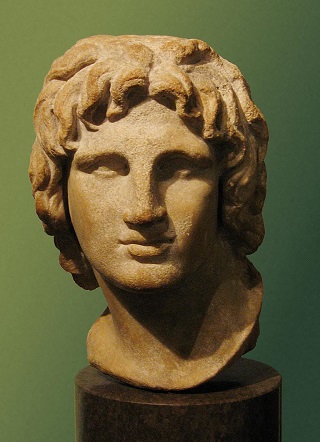 |
Born: July 356 BC,
Pella, Greece
Died: June 323 BC, Babylon, Iraq Parents: Philip II of Macedon, Olympias Spouse: Roxana (m. 328 BC–324 BC), Stateira II (m. 325 BC–324 BC), Parysatis II (m. 325 BC–324 BC) Children: Heracles of Macedon, Alexander IV of Macedon Alexander III of Macedon, commonly known as Alexander the Great, was a king of the Ancient Greek kingdom of Macedon and a member of the Argead dynasty. Born in Pella in 356 BC, Alexander succeeded his father, Philip II, to the throne at the age of twenty. He spent most of his ruling years on an unprecedented military campaign through Asia and northeast Africa, and by the age of thirty he had created one of the largest empires of the ancient world, stretching from Greece to northwestern India. He was undefeated in battle and is widely considered one of history's most successful military commanders. |
 |
 |
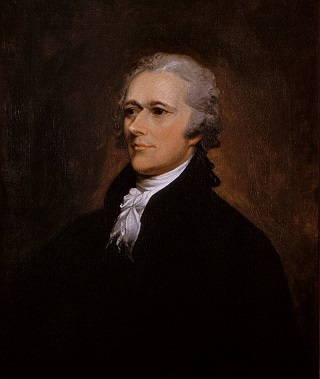 |
|
Born: Charlestown,
Saint Kitts and Nevis
Died: July 12, 1804, Greenwich Village, New York City, NY Buried: Trinity Church Cemetery Children: Philip Hamilton, John Church Hamilton, More |
 |
| Alexander
Hamilton was an American statesman and one of the Founding
Fathers of the United States. He was an influential interpreter
and promoter of the U.S. Constitution, as well as the founder of
the nation's financial system, the Federalist Party, the United
States Coast Guard, and The New York Post newspaper. As the first Secretary of the Treasury, Hamilton was the main author of the economic policies of the George Washington administration. He took the lead in the funding of the states' debts by the Federal government, as well as the establishment of a national bank, a system of tariffs, and friendly trade relations with Britain. He was opposed by the Democratic-Republican Party led by Thomas Jefferson and James Madison. They denounced Hamilton as too friendly toward Britain and too monarchy in general. |
 |
 |
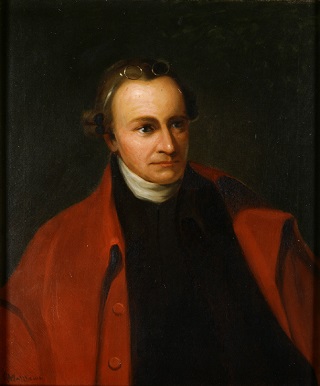 |
  |
   |
Born: May 29, 1736,
Birthplace of Patrick Henry
Died: June 6, 1799, Brookneal, VA Buried: Red Hill Patrick Henry National Memorial, VA Children: Dorothea Spotswood Henry, Richard Henry, More Spouse: Dorothea Dandridge (m. 1777–1799), Sarah Shelton (m. 1754–1775) Patrick Henry (May 29, 1736 – June 6, 1799) was an American attorney, planter and politician who became known as an orator during the movement for independence in Virginia. A Founding Father, he served as the first and sixth post-colonial Governor of Virginia, from 1776 to 1779 and from 1784 to 1786. Henry led the opposition to the Stamp Act 1765 and is remembered for his "Give me liberty, or give me death!" speech. Along with Samuel Adams and Thomas Paine, he is regarded as one of the most influential champions of Republicanism and an enthusiastic promoter of the American Revolution and its fight for independence. |
 |
|
| After the Revolution, Henry was a leader of the anti-federalists in Virginia. He opposed the United States Constitution, fearing that it endangered the rights of the States as well as the freedoms of individuals; he helped gain adoption of the Bill of Rights. However, by 1798 he supported President John Adams and the Federalists. He denounced passage of the Kentucky and Virginia Resolutions as he feared the social unrest and widespread executions that had followed the increasing radicalism of the French Revolution. | |
 |
 |
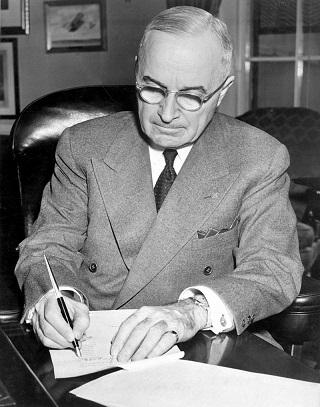 |
Born: May 8, 1884,
Lamar, MO
Died: December 26, 1972, Kansas City, MO Vice president: Alben W. Barkley (1949–1953) Party: Democratic Party Education: University of Missouri–Kansas City Harry S. Truman was an American politician who served as the 33rd President of the United States (1945–53). He served as a United States Senator from Missouri (1935–45) and briefly as Vice President (1945) before he succeeded to the presidency on April 12, 1945 upon the death of Franklin D. Roosevelt. He was president during the final months of World War II, and approved the plan to drop atomic bombs on Hiroshima and Nagasaki. Truman was elected in his own right in 1948. He presided over an uncertain domestic scene as America sought its path after the war and tensions with the Soviet Union increased, marking the start of the Cold War. |
 |
 |
 |
 |
  |
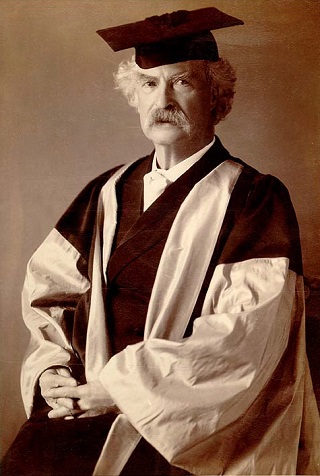 |
 |
 |
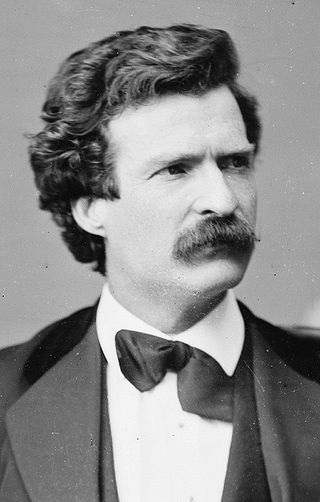 |
  |
|
Born: November 30, 1835, Florida, MO
Died: April 21, 1910, Redding, CT Full name: Samuel Langhorne Clemens Buried: April 24, 1910, Woodlawn Cemetery, Elmira, NY Samuel Langhorne Clemens (November 30, 1835 – April 21, 1910), better known by his pen name Mark Twain, was an American writer, entrepreneur, publisher and lecturer. Among his novels are The Adventures of Tom Sawyer (1876) and its sequel, Adventures of Huckleberry Finn (1885), the latter often called "The Great American Novel". Twain was raised in Hannibal, Missouri, which later provided the setting for Tom Sawyer and Huckleberry Finn. After an apprenticeship with a printer, Twain worked as a typesetter and contributed articles to the newspaper of his older brother, Orion Clemens. He later became a riverboat pilot on the Mississippi River before heading west to join Orion in Nevada. He referred humorously to his lack of success at mining, turning to journalism for the Virginia City Territorial Enterprise. In 1865, his humorous story "The Celebrated Jumping Frog of Calaveras County" was published, based on a story he heard at Angels Hotel in Angels Camp, California, where he had spent some time as a miner. The short story brought international attention, and was even translated into classic Greek. His wit and satire, in prose and in speech, earned praise from critics and peers, and he was a friend to presidents, artists, industrialists, and European royalty. |
|
 |
 |
 |
 |
  |
  |


